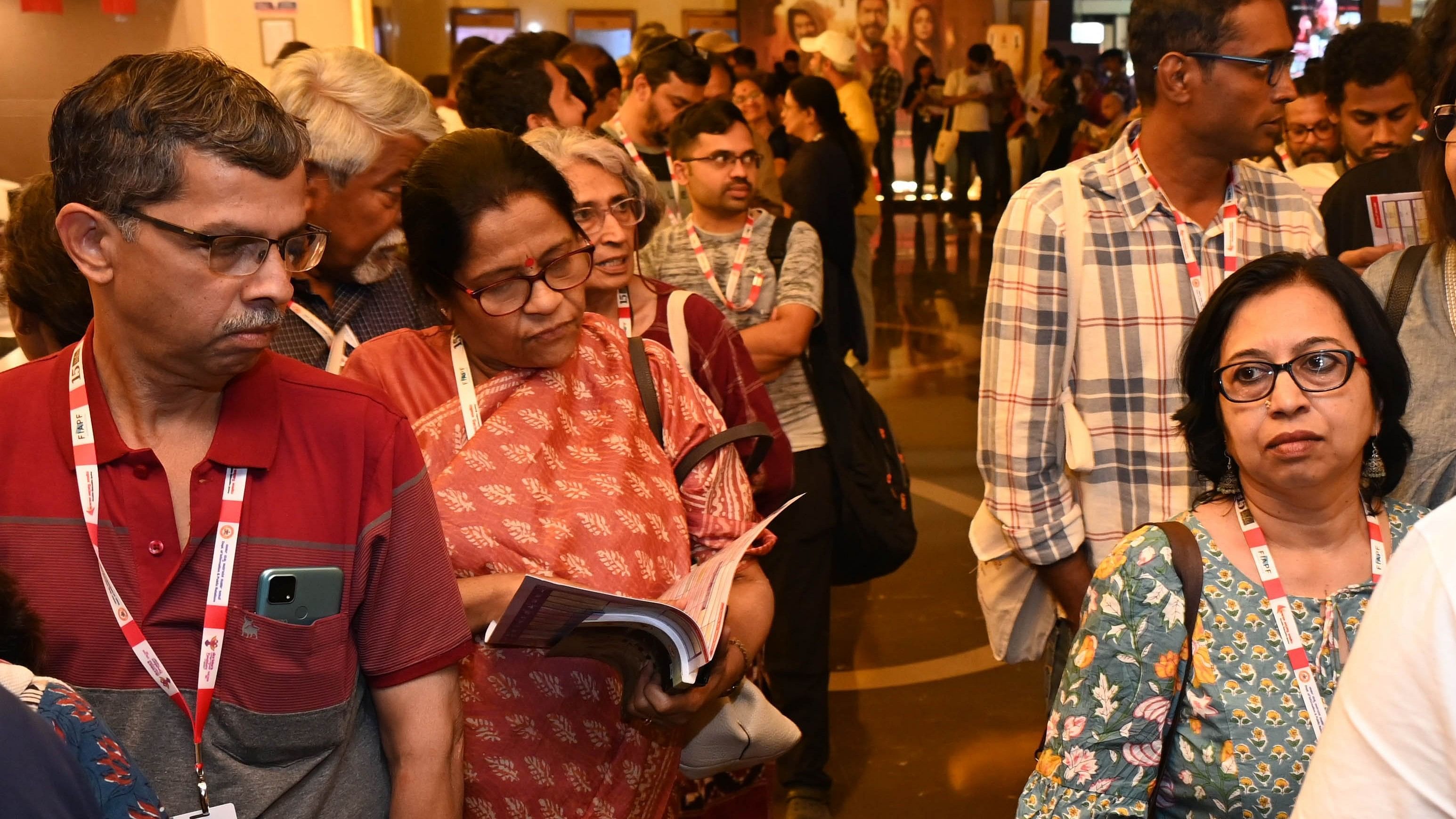
Cinephiles queue up to watch the films at the 15th edition of the Bengaluru International Film Festival at Orion Mall in Bengaluru on Friday.
Credit: DH photo/Kishor Kumar Bolar
Bengaluru: Scores of cinephiles thronged the Orion Mall, Rajajinagar, as the screening of films from different parts of the world started smoothly as part of the 15th edition of the Bengaluru International Film Festival (BIFFes) on Friday. However, two movies failed to get clearance from the I&B Ministry.
Films, like And, Towards Happy Alleys, Toll, Fallen Leaves, About Dry Grasses, Evil Does Not Exist among others, were the main attractions cinephiles were excited about. The festival surprised them by giving out the festival catalogues on the first day of screenings. A sweet surprise indeed for a festival that has been handing out the catalogues late in the past few years.
“The (film festival) organising, this year, has improved as compared to the previous few years. The screenings have been starting on time and the volunteers too unlike the previous years are polite, kind and professional,” said Viveka from Bengaluru.
This year’s signature film of the festival featured folk music, instruments and artistes. While the previous years had badly made animated films of the Gandaberunda (a mythical bird used in Govt logos) flying across the world to depict the showcase of world films at the festival, this year the film is more rooted in the state.
Anandu Mohan from Kerala, who attends the festival every year, said, “I liked how the festival is well accessible to senior citizens who have been watching films for over 30 to 40 years.” However, Anandu felt the festival lacked diversity in film curation. “Imagine watching Alejandro Jodorowsky’s film in one theatre and Bela Tarr in the next. That’s what I mean by diversity — one is a bizarre film and the other, a peaceful one,” he said.
Cinephiles were also frustrated about the schedule which screened all the must-watch films in the same slot.
2 films didn’t get I&B Ministry clearance
Directed by Kesari Haravoo, ‘Kisan Satyagraha’ is a documentary film about the farmers’ protest against farm laws. The Ukrainian film ‘20 Days in Mariupol’, directed by Mstyslav Chernov, follows Ukrainian journalists trapped in Mariupol and documents the images of war—dying children, mass graves and bombing maternity hospitals among others.
Both the films that discuss the current political climate of the world were not given clearance from the Information and Broadcasting Ministry. The films were programmed and have also appeared in the festival catalogue.
Speaking to DH, Kesari Haravoo said he had sent the film to BIFFes last year. But the festival had refused selection. But this year, the festival organisers approached Haravoo to programme it in the documentary section on thematic films on human resilience, rights and values. Haravoo, however, is not surprised by this. “We all know very well what kind of regime we have in India and how the central government works. So, this will happen again. I’m not surprised by it.”
Dr Jabbar Patel, the director of ‘Dr Babasaheb Ambedkar’ presented a lecture about Constitutional values and Indian cinema.